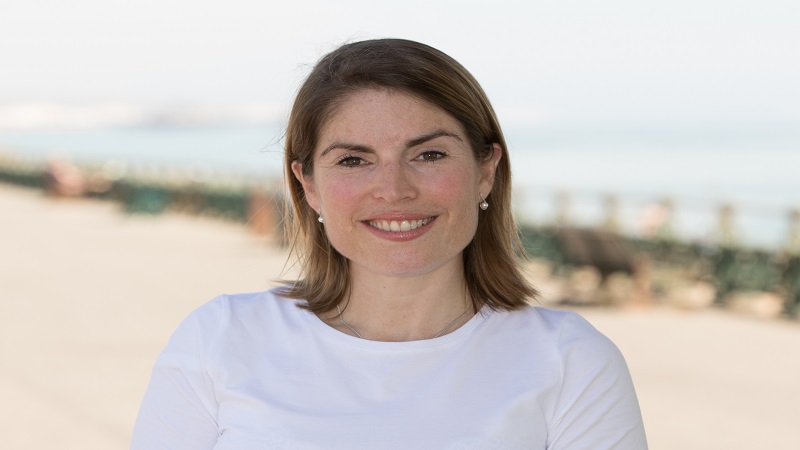The end of a calendar year provides the perfect opportunity for lines to be drawn, and predictions forecast. And while 2016 will largely be remembered for the number of famous lives it took, the surprise Brexit decision and election of Donald Trump, there were also more positive developments in the FM and workplace sector.
This year saw the word wellbeing become part of the workplace lexicon and that’s only going to intensify in 2017. Workplace design will focus on creating less sedentary work practices, says Adrian Powell, director at office design and build firm Active, through encouraging movement around the office space. “Companies recognise this will lower absenteeism and help to attract talent. Employees are certainly more educated now about healthy living and have become much more health conscious. Companies also realise that workplace stress is a massive health issue, so designing and creating a healthier and more relaxed environment will create true benefit.”
Powell predicts a real emphasis on ‘teams’, continuing the theme of collaboration spaces which took centre stage in 2016. “Employers are beginning to recognise that companies structured into high performing teams are enabling themselves to compete and win! This will be pushed for by millennials and gen Z workers who have grown up playing team sports, who may have the same expectations of their office.”
With a growing millennial workplace population, technological innovations will continue to make a major impact on the FM world. There will be more connection, more automation, and more significant impact in business and investment than ever before. “Service companies will need to be more technology savvy in the delivery of services and production of management information, as technology is shaping the human life at a rapid pace and service delivery needs to keep a pace with that ‘instant’ culture,” says Glen Cardinal, managing director of Platinum Facilities and Maintenance Services. But he acknowledges that there’s a balance to be had with old fashion face-to-face customer relationships.
The Internet of Things which started being talked about in 2016 will become more affordable and be used by leading organisations to support enhanced workplace experiences. That’s the prediction of Andrew Mawson, founder and MD of Advanced Workplace Associates. And it’s backed up by Andrew Sugars, director of corporate development at Servest Group. “Data analytics and IoT will be more entrenched in FM’s way of thinking, in terms of helping the decision making process of where to direct their focus. The move from service focused KPIs to enhancing customer experience metrics will be driven predominantly through apps, that are changing the way end users interact day to day with their work environment.”
2017 will yield even more integration of CAFM and other systems within a building, adds Gary Watkins, CEO of CAFM provider Service Works Group. “Effective management of the facilities lifecycle is often cited as an enterprise’s second largest expense, and system integration will allow better access to information, with intelligent workflows automating processes for high efficiency. We expect data across all applications to be standardised, driving the market forward in areas such as automated guided vehicles, increasing productivity and work place safety.” Watkins also forecasts increased mobility, the rise of ruggedised devices, more wearable technology, increased location-based services and bigger big data.
There will also be a fundamental shift in service delivery models. Traditional FM service delivery models are going to come under increased pressure following the uncertainty of the Brexit decision, the recent election of Donald Trump as US president, Government policies around the apprenticeship levy, the new minimum wage level and the pressure, in the public sector at least, to involve SMEs in the supply chain.
“We are going to see more innovation around FM models, particularly for organisations with large property portfolios,” says Colin Kenton, managing director, FM services at KBR. “The Integrator model, whereby one outsourced organisation offers the client a cohesive solution by integrating process, technology, reporting and performance measurement/management across all service providers in the supply chain, will gain ground,” he predicts. This matured and adapted version of the managing agent model provides the client with a stand-alone matrix of processes, resources, skills and knowledge to manage all of its services, which crucially, meet their specific needs. Its innate flexibility responds well in changing economic and political times.
There will be further consolidation in the FM supply base, as service providers become unprofitable after further cost cutting. That’s the prediction from AWA’s Andrew Mawson. “Meanwhile larger SMEs and more thoughtful occupiers will seek out boutique FM supply companies to provide more innovative partnership based ‘workplace management’ services.”
With all these changes, there will be a major push by companies to attract and retain the top talent in the industry, forecasts Dave Kentish from people development specialists Kentish and Co. “This means that they will have to invest in developing people within their business and making sure they get known for being the company to work for. It’s all about growing your own.”
That’s certainly something that Nikki Dallas, MD and founder of FM recruitment business Talent FM, agrees with. She forecasts a need for more project management and space management professionals once the timetable for Brexit is known and banks and other financial services firms decide if they’re leaving or staying in London. There will also be a demand for UK qualified talent in the Middle East with Expo 2020 Dubai and the FIFA World Cup in Qatar in 2022. “These large events require an improvement in infrastructure which means more need for built environment and FM professionals,” she predicts.
What’s clear is the ramifications of the big decisions of 2016 are going to be felt throughout next year and beyond, but the enthusiasm for the FM sector to innovate, grasp the nettle of new technology and new service delivery models will ensure it triumphs over any further adversity.
Cathy Hayward is a communications specialist with over 18 years’ experience in a range of journalistic and marketing roles. She founded Magenta in 2011 after 13 years as a business journalist where she launched FM World and edited Charity Finance as well as working on titles such as Financial Management, Supply Management, Unions Today, Marketing Week, Soccer Analyst and Director.







